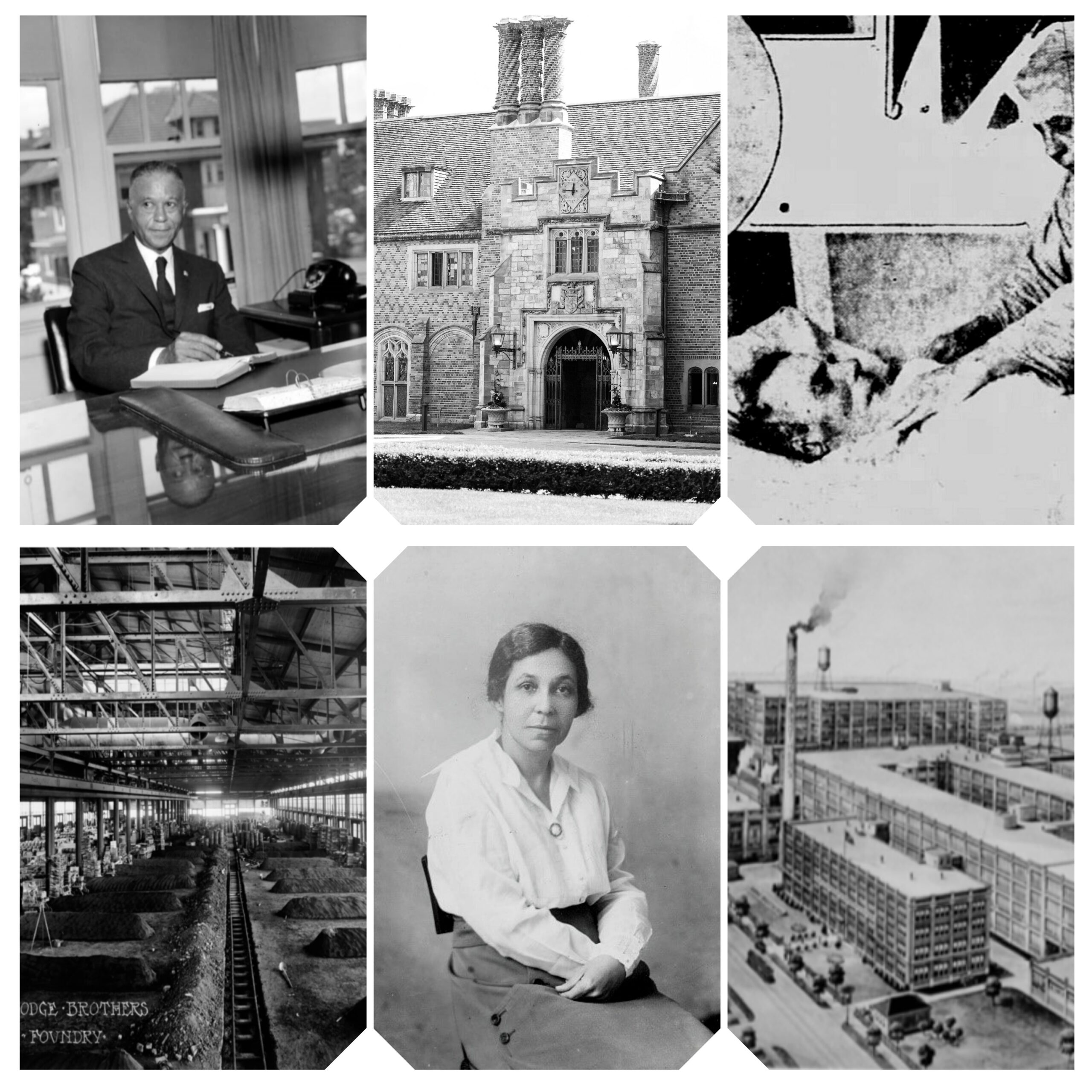Each February, our nation honors the heritage, history and accomplishments of African Americans with Black History Month.
At Meadow Brook Hall, we are sharing some of the stories of the remarkable people whose lives were intertwined with the Dodge and Wilson families.
Many different and diverse people played fascinating roles in the community and within the walls of Meadow Brook Hall. Their stories are an inspiring part of the heritage of this National Historic Landmark and help us to create a more complete portrait of its role in black history and beyond.
Mary Mathews
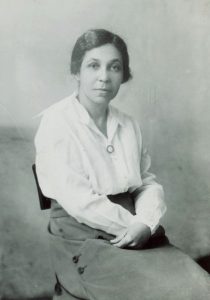
More than any other staff member of the Meadow Brook household, Mary Mathews was part of the family. As Matilda Dodge Wilson’s beautician, confidante and friend, Mary helped run the house, raise the children, provide emotional support in times of trouble – and kept Matilda well-coiffed! Mary was a trusted companion for Matilda for decades. The pair decorated The Hall for Christmas together and wrapped all the presents for the family and staff, sometimes late into the night.
Born in Ontario in the 1870s to a white English mother and a black father from St. Louis, Mary Mathews was Matilda’s right hand woman from the 1910s to the 1950s. Mary was an independent spirit. Although she was a member of the Meadow Brook staff, she had her own house in Detroit and would drive back and forth every day – no matter the weather. Matilda purchased the house for her, but Mary paid back every dime until it was truly hers.
Mary was very active in social, charitable and religious organizations, particularly the In-As-Much Circle of King’s Daughters and Sons that supported women of color. Mary spearhead campaigns and fundraising drives and served as the chairwoman for events. She even founded the Yitrahc Club (charity spelled backwards) to support a home for aged women of color. Matilda joined her in these efforts as a donor and even member and attendee on occasion. In 1948, Mary received a volunteer award at City Hall for her work.
Cyrus Bowles
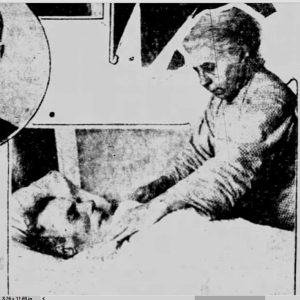
Cyrus Bowles was a black Civil War veteran who worked in the family machine shop run by John and Horace Dodge’s uncles and father in Niles, Mich. He was an important figure in the young Dodge boys’ lives, and they treated him like an uncle. Cyrus taught the brothers to fish and used to cut whistles for them from weeping willow branches. They sat on his lap and he told them stories of life on the Southern plantations.
Although the Dodge brothers grew up and lost touch over the years, they kept a special place in their hearts for Cyrus. He received a pension from the Dodge Brothers Motor Company although he did not work there. About a month before John Dodge died (from influenza during the 1918 pandemic), he discovered that the elderly Cyrus was ill and paralyzed. John wrote to the mayor of Niles (a boyhood friend) to ensure that Cyrus was taken care of properly and to pay for his funeral.
Yet the resilient Cyrus outlived John Dodge and his brother Horace nearly a year later. After John’s death, Matilda ensured that Cyrus was well cared for and financially supported until the end of his days. At over 80 years old, Cyrus had known many people, survived extraordinary times and had many unique experiences in his life, yet he was most proud of his role in helping John Dodge grow into a man of character and vision.
John C. Dancy, III
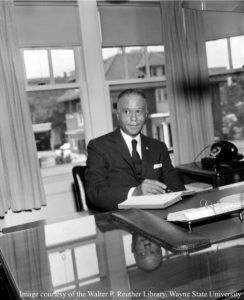
John C. Dancy III was a tenacious figure in Detroit. He was the son of prominent African American politician, educator and journalist John C. Dancy, who was born a slave. His father was a friend and colleague of Booker T. Washington. John was the executive director of the Detroit Urban League from 1918 to 1960 who created clear change by improving race relations to expand social services and employment opportunities for African Americans in the community.
In 1919, John went to the Dodge Motor Company offices on the off chance that he might speak to someone in authority about hiring black workers. To his surprise, John Dodge met with him and agreed to host a luncheon meeting of the National Urban league at the plant to hear more. Following that meeting, John Dodge gave his employment manager the responsibility of increasing black employment – joining Ford Motor Company as one of the first Detroit auto companies to hire African American workers.
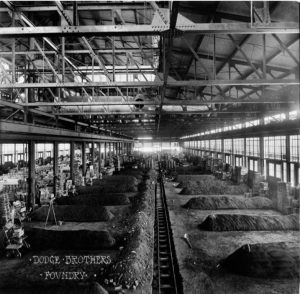
Black workers were most frequently hired to work in the forge and foundry—one of the most difficult and demanding roles in the industry. Although the work was hard, the Dodge brothers were known as generous employers who maintained a more humane treatment of their workforce (particularly compared to the demanding pace at Ford). The forge and foundry workers were treated to cold beer and sandwiches on hot summer days.
John was a talented, passionate and effective leader. His life was dedicated to promoting racial progress through good human relations, a philosophy he outlined in his memoirs, “Sands Against the Wind” (1966). At his retirement in 1960, the mayor of Detroit proclaimed “John C. Dancy Day” and more than seven hundred civic leaders and other distinguished state and national guests attended a tribute to “Mr. Urban League.” President Eisenhower and Vice President Nixon sent congratulatory telegrams. John’s incredible life and work has been recognized nationally and helped pave the way for the Civil Rights Movement in the 1960s.
For more stories of Meadow Brook, visit meadowbrookhall.org/history-at-the-hall.

